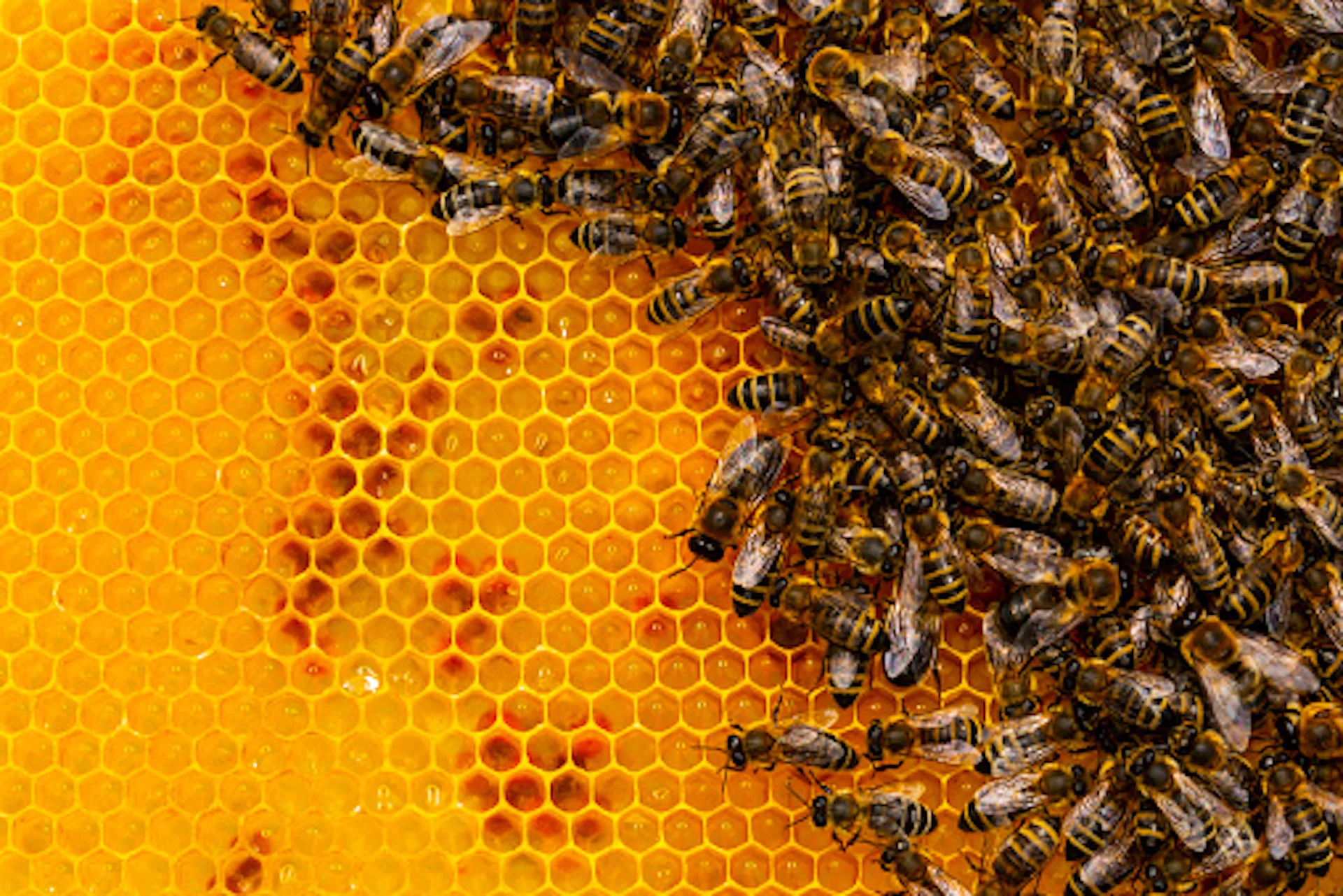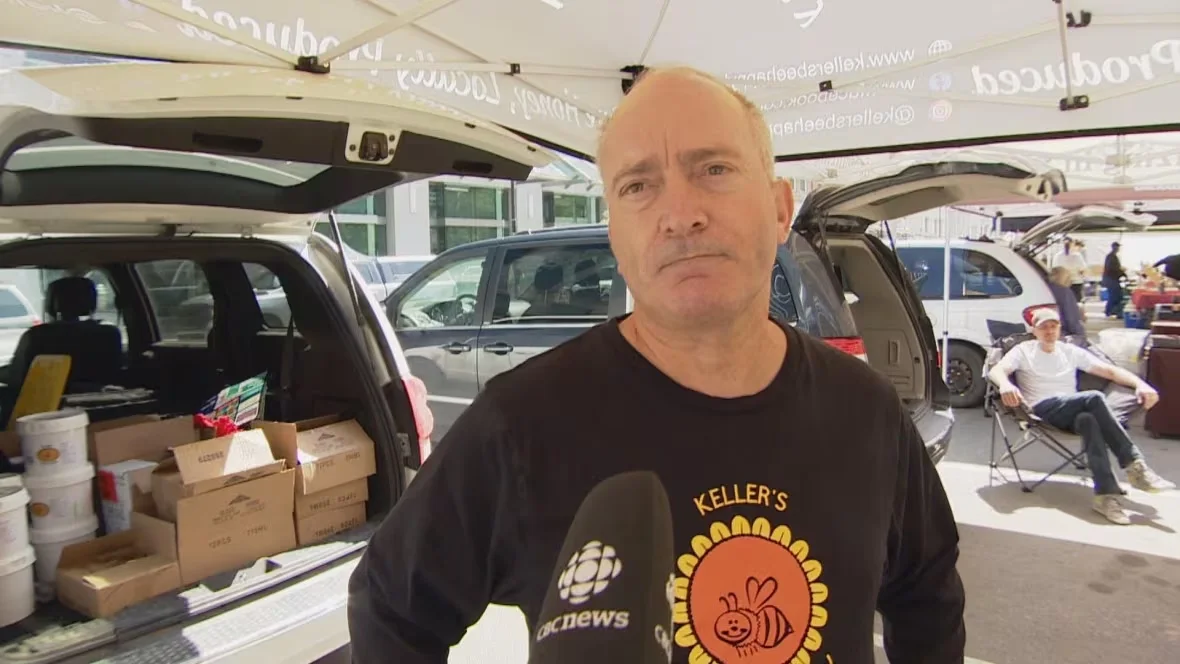
Weather has role in Saskatchewan beekeepers' struggle with honey production
Gary Keller says his honey business has produced well over the past few years, but this season is looking less successful.
Keller, the owner of Keller's Bee Happy Honey, said the bees had a hard time collecting nectar and pollen due to the cold and wet spring, and the hot summer meant a short blooming window for canola flowers that produce the nectar bees need. These factors have him expecting less production for beekeepers across the province.
"Already the flowers are stopping giving nectar, so it's going to be a very short honey flow," he said.
SEE ALSO: Honey, I'm hot! What summer heat does to honeybees
Keller said that although the season is not done yet, he anticipates about 50 per cent less honey than a normal year.
"The bees are strong and healthy, it's just that they didn't bring the numbers in," he said.

Gary Keller says this year's honey season has been a setback for beekeepers across the province. (Kirk Fraser/CBC News)
Andrew Hamilton of Hamilton Apiaries shares the same concerns. He said he's been more focused on selling other products this year.
Hamilton has been operating the business for 10 years. He also extracts honey for other people and said beekeepers across the province are experiencing low production this year.
"There's just no honey out there," he said.
Hamilton said there wasn't a lot of nectar for bees in the spring, leading keepers to use supplemental feeding to get them through the season. Despite that, he had high hopes for the summer, but they have come crashing down.
Hamilton said his business produces 200 pounds of honey per colony during a normal year.

Andrew Hamilton says his business usually produces around 200 pounds of honey per colony, but this season he's expecting 80 to 100. (Tyreike Reid/CBC News)
"But this year we're looking at around 80 to 100. It's way down," he said.
Bees experiencing health issues across the province
Saskatchewan is typically one of Canada's top honey producers on a per-hive basis.
The province typically produces 180 pounds per hive and has around 100,000 colonies, according to Geoff Wilson, an agriculture specialist for the Saskatchewan government.
While the weather played a major role in this year's production, Wilson said bee diseases have also been cropping up more. He said a bacterial disease called European foulbrood has been making its way through the province "at levels we haven't seen before."
He also said varroa mites, a reddish-brown honeybee parasite, have become a problem.

Geoff Wilson, an agriculture specialist for the Saskatchewan government, says a bacterial disease known as European foulbrood has been increasing in bee colonies this year. Varroa mites, a parasite, have also spiked. (CBC News)
"The mites are currently much, much higher than typical at this time of year," he said.
It's not the first time the mites have caused problems in the province. In 2022, bee mortality rates shot up due to the mites proliferating during the winter season.
Wilson said the mites could affect the bees' wintering this year, which would then impact next season's honey production, but the European foulbrood has most likely already impacted this year's harvest.
Keller said it's best to deal with the pests as soon as possible. Although this year's honey season is close to an end, he's remaining optimistic for the future seasons.
"You just gotta do your due diligence and hope for the best," he said.
WATCH: Female bees cope better than males during temperature extremes
Thumbnail courtesy of Getty Images/Petr Bonek/1813341597-170667a.
The story was originally written by Tyreike Reid and published for CBC News. It contains files from Kirk Fraser.









